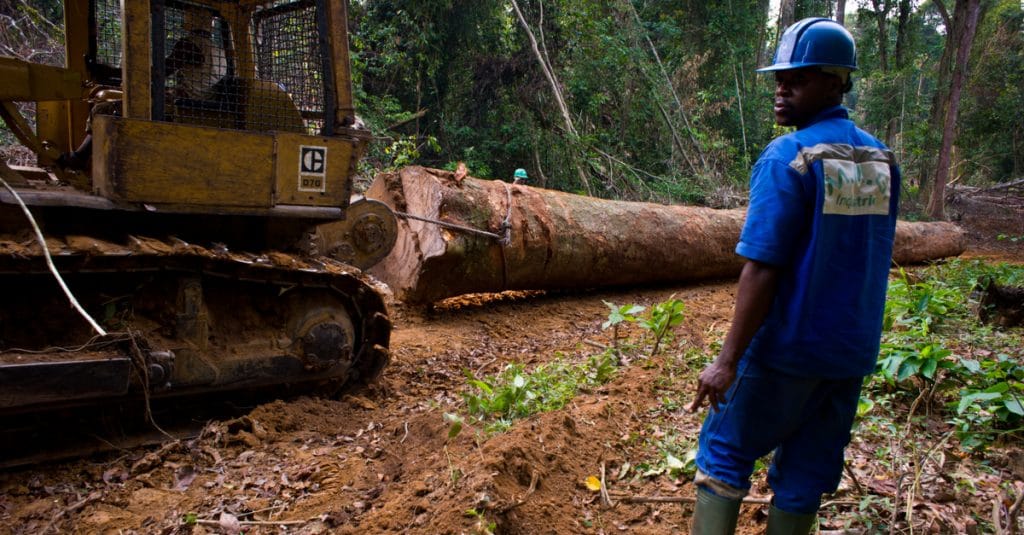The publication of an implementing decree on the logging of approximately 70 million hectares of forest is imminent in the Democratic Republic of Congo (DRC). The decision to lift the moratorium on new logging concessions in the DRC was approved on July 9th, 2021 by the eleventh Council of Ministers, chaired by President Felix Tshisekedi.
The ban was introduced in 2002 to prevent the looting of forests after the war. Although traffickers are already taking advantage of the weak state control over the forests to violate the ban, “an official lifting of the ban will lead to a catastrophe for people, forests, biodiversity and the climate,” warns Greenpeace Africa. In a letter sent on October 21st, 2021 to Josefa Leonel Correia Sacko, the Commissioner for Rural Economy and Agriculture of the African Union (AU), the environmental non-governmental organization (NGO) calls for a discussion session to be held on the DRC government’s plan to lift the moratorium on new logging concessions.
Up to 60% of Congo Basin forest at risk
Acknowledging the DRC’s sovereignty over its forest (60% of the Congo Basin forest), Greenpeace says that its destruction would be disastrous for the climate of all of sub-Saharan Africa. “It is estimated that the Congo Basin forest contributes to more than half of the annual rainfall in sub-Saharan Africa. A region already facing a plethora of droughts and extreme heat waves,” Greenpeace is alarmed.
Read also-AFRICA: Creation of a business forum for sustainable forestry
Greenpeace’s letter to the AU is based on the pan-African organization’s commitments to biodiversity conservation. Under Agenda 2063, the AU commits to keeping “Africa’s unique natural wealth, environment and ecosystems, including its wildlife and wild lands…healthy, valued and protected, with climate resilient economies and communities.” Furthermore, the AU’s Sustainable Forest Management Framework (SFMF) 2020-2030 promises that by 2063, Africa will have zero deforestation and forest degradation and its forests will be protected, sustainably managed and restored through collaborative, cross-sectoral and transformative efforts to ensure prosperity, food security and resilience for its people.
Boris Ngounou
